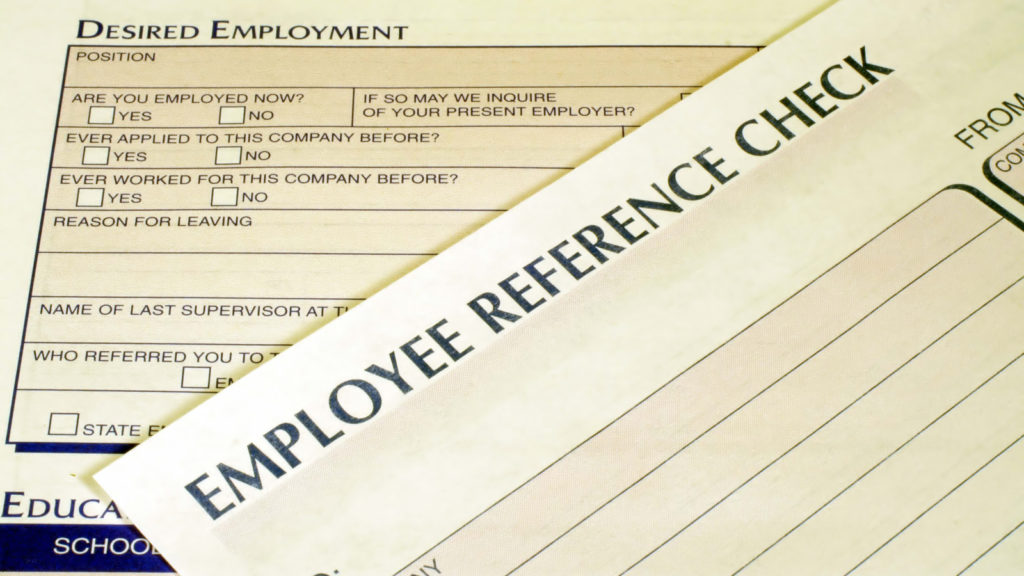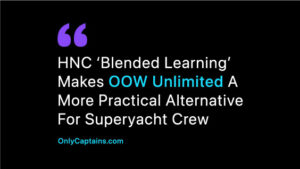The thorny subject of references, their value, authenticity and honesty has long been debated, not only in the yachting industry but also in all employment sectors. Below I look at some of the issues that should be considered.
It is important to understand that there is no legal requirement to provide a reference – unless written into contract – though morally, a company may feel compelled to provide one, especially if the lack of one could adversely affect future employment. However, if a reference is provided, it must be honest, factual and contain no discriminatory or defamatory statements.
The legal ramifications of issuing a reference that is proved to be untrue, or with malice, can lead to claims of negligence and/or libel, and could prove costly, both financially, and to a company’s reputation. As a note of caution: if there has been no formal investigation, or other evidence to back-up a negative claim, the referee would have difficulty in defending a legal action.
With that in mind it is no surprise that there is a reluctance to issue them, or that many companies have a policy to provide limited factual information such as; yacht name, rank, start and finish dates, etc.
Of course it is important that recruiters and prospective employers carefully check all references, whether good or bad. References tend to be a mixture of fact, which can be substantiated, and opinion, which should to be subjected to scrutiny and crosschecked by other sources of information in order to form an accurate picture.
And, in the case of a bad reference, especially if it seems inconsistent with other references, there is a duty of care to check it more carefully due to the adverse affect it may have on a candidates future. Is it fair and true? Purely hearsay? Is there a bias or other underlying reason e.g. a clash of personality, or a disagreement with a captain or management company? Rarely is it black and white! If there is any doubt, that reference should probably be ignored.
As many references are given in confidence and, without the knowledge of the individual, what can yacht crew do if they suspect there is a reference floating around that they feel is affecting their career?
Today, all companies are subject to data protection legislation. This article touches on the UK Data Protection Act of 1998 and how it applies to an individuals right to see references held in their name, though it is likely that other countries have similar legislation.
Under this Act the author (organisation or individual) of a reference is exempted from providing an individual with a copy of the reference. However, once a reference has been passed to a third party e.g. recruitment agency, management company, etc., that third party is not exempted from the Act and must consider a request for a copy under a Subject Access Request.
The company that receives the request must make every reasonable effort to provide the information, within certain criteria and, even if the information was given in confidence, they should weigh the referees desire to confidentiality against the individuals’ interest in seeing what has been said about them, especially if it is materially affecting their career. And, I would suggest, it is entirely reasonable to expect that an individual should be allowed access to a reference given about them – how else can the accuracy of the information be challenged?
There can be no doubt that a reference should be “handled with care” whether requesting, providing, receiving, or making a decision based on one.
Summarising the situation:
For yacht crew
- There is no legal obligation for employer to give a reference unless there is a contractual entitlement to one
- There is no legal obligation for the reference to be full and comprehensive
- If a reference is provided, written or verbally, it has to be fair and true and should be able to withstand evidential scrutiny
- The UK Data Protection Act allows an individual to request a copy of references provided to a third party, but not directly from the previous employer
- If you have received a bad reference and it is factually untrue and/or with malice, then proceedings can be taken against the referee for libel and/or negligence and claim loss of earnings/damages.
For referees
To mitigate any potential liabilities, companies or individuals providing references, should have in place policies and procedures ‘best practice’ for issuing references, such as:
- A commitment to provide objective, true, accurate and fair references, and that no information will be provided in malice
- Never comment on any misconduct where there has been no formal proceedings
- Ensure records are kept on all matters relating to an employee’s employment
- Qualify and quantify the authors professional relationship with the employee
- Limit references to a ‘statement of facts’ and ensure the ‘policy’ is well communicated so that it cannot be misconstrued as negative reference by a recipient
- Keep records of all communication relating to references
- If signed on the behalf of a company, it should be approved by a senior manager/director
Finally, as it will be important to understand the legislation as applied by other countries, my suggestion would be that companies and individuals obtain professional legal advice to ensure they fully understand their obligations and rights in this matter.









